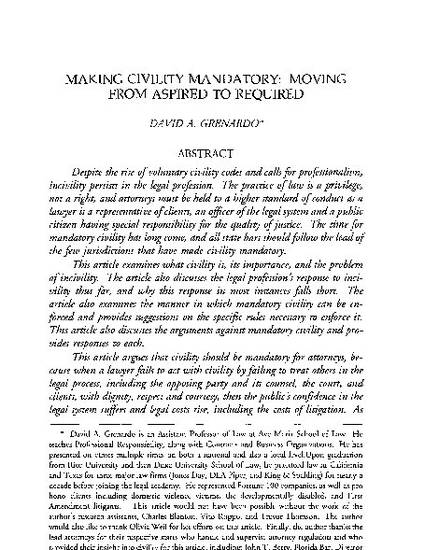
Despite the rise of voluntary civility codes and calls for professionalism, incivility persists in the legal profession. The practice of law is a privilege, not a right, and attorneys must be held to a higher standard of conduct as a lawyer is a representative of clients, an officer of the legal system, and a public citizen having special responsibility for the quality of justice. The time for mandatory civility has long come, and all state bars should follow the lead of the few jurisdictions that have made civility mandatory.
This article examines what civility is, its importance, and the problem of incivility. The article also discusses the legal profession’s response to incivility thus far, and why this response in most instances falls short. The article also examines the manner in which mandatory civility can be enforced and provides suggestions on the specific rules necessary to enforce it. This article also discusses the arguments against mandatory civility and provides responses to each.
This article argues that civility should be mandatory for attorneys, because when a lawyer fails to act with civility by failing to treat others in the legal process, including the opposing party and its counsel, the court, and clients, with dignity, respect and courtesy, then the public’s confidence in the legal system suffers and legal costs rise, including the costs of litigation. As the former United States Supreme Court Justice Sandra Day O’Connor said, “More civility and greater professionalism can only enhance the pleasure lawyers find in practice, increase the effectiveness of our system of justice, and improve the public’s perception of lawyers.”
